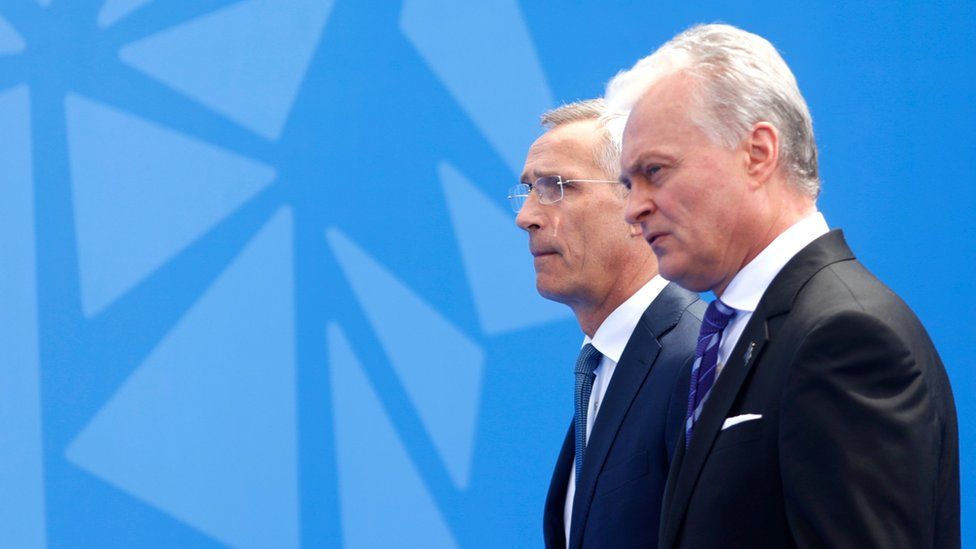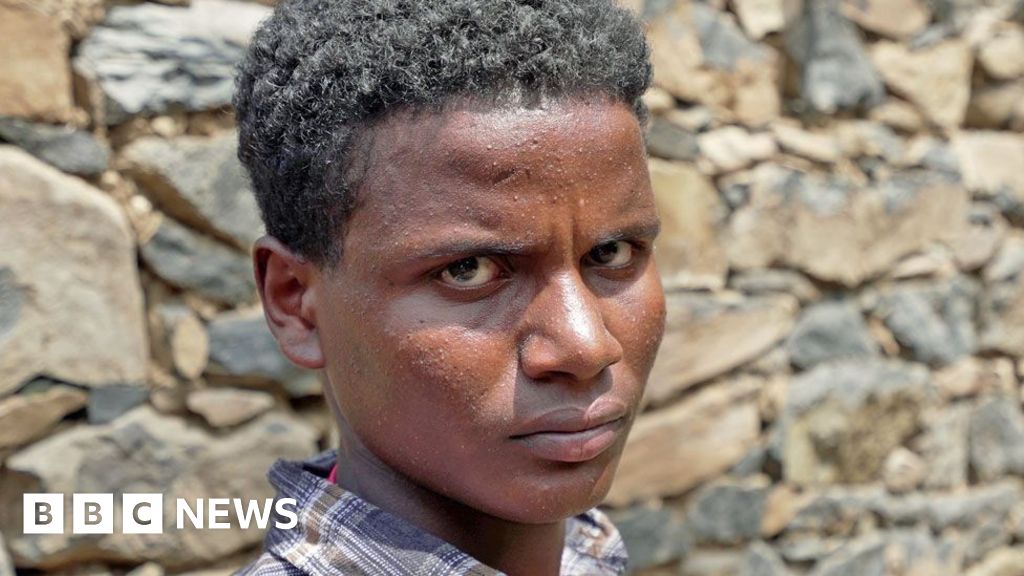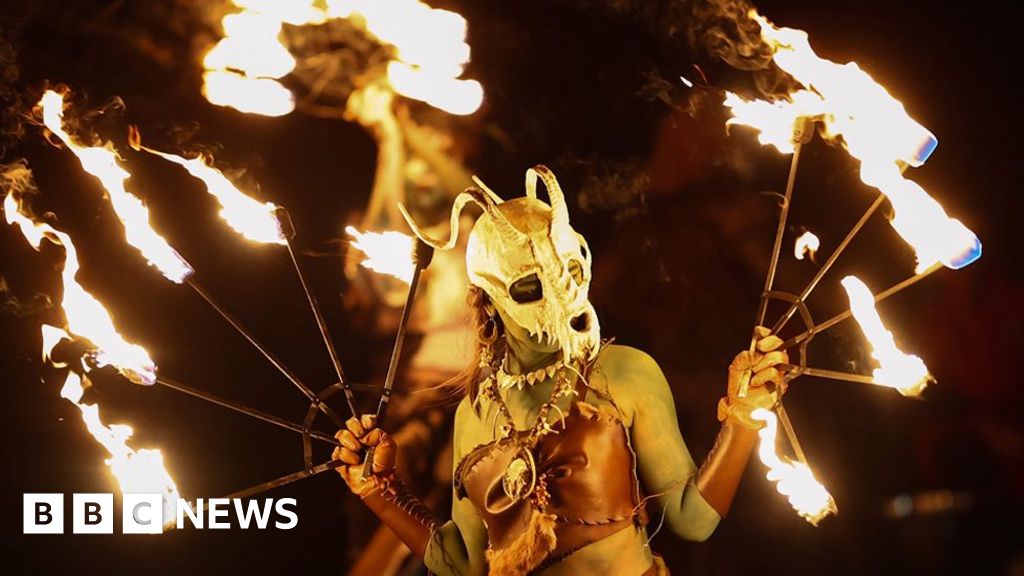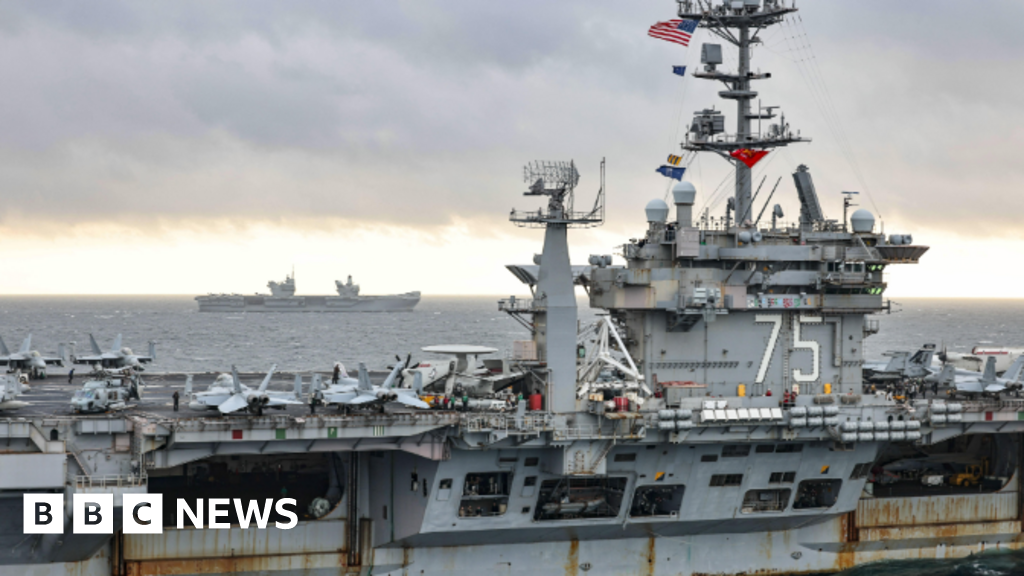ARTICLE AD BOX
 Image source, Alamy
Image source, Alamy
Lithuanian President Gitanas Nauseda (r) hosts Nato Secretary-General Jens Stoltenberg and the leaders of member countries.
By James Landale
Diplomatic correspondent, Vilnius
Nato leaders are gathering in Lithuania for a crucial summit that could shape the direction of the war in Ukraine and the future of the Western alliance.
The 31 allies hope to show Russia they have the resolve to support Ukraine militarily for the long term.
They arrive with a welcome boost after Turkey dropped its objections to Sweden joining the alliance.
But there remains disagreement over what to say about Ukraine's own ambitions of future membership.
It is thought some allies will promise Kyiv new security guarantees designed to deter future Russian aggression. They will also discuss providing more weapons and ammunition.
On the membership issue, Ukrainian President Volodymyr Zelensky wants Nato to say Ukraine could join as soon as possible after the fighting ends - setting out explicitly how and when this could be achieved.
But some Nato nations are reluctant to go too far, fearing the promise of near-automatic membership could give Russia an incentive both to escalate and drag out the war.
Jens Stoltenberg, the Nato secretary general, said no final decision had been made on the language of the final communiqué, but added: "I am absolutely certain that we will have unity and a strong message on Ukraine."
But after late night talks on Monday, he announced that Turkey had agreed to support Sweden's application to join Nato. The news was welcomed by the US and Germany, as well as Sweden itself.
Turkey had spent months blocking Stockholm's application, accusing it of hosting Kurdish militants. Mr Stoltenberg said the two sides had worked together to address Turkey's "legitimate security concerns".
Turkish President Recep Tayyip Erdogan earlier suggested he would back Sweden if the EU re-opened frozen membership talks with Ankara - a request that was rejected by EU officials.
Over their two-day meeting, Nato leaders are expected to agree new plans to deter and defend the alliance against future Russian aggression by beefing up their forces in the east.
And they are also expected to step up their financial commitment, making the target of spending 2% of national wealth on defence a minimum figure, rather than a general ambition. Rishi Sunak's spokesman said the UK prime minister would call on allies directly to meet this target.
Security is tight in Vilnius, with Nato forces - including Patriot air defence missiles - defending a summit taking place only a short distance from Belarus and the Russian exclave of Kaliningrad.
The overarching aim of the meeting is for Nato to convince President Vladimir Putin of the alliance's long-term military commitment to Ukraine.
Officials hope this could begin to change the Russian leader's thinking, putting doubt in his mind that he can outwait the West.
As such, some see this summit as potentially as important as military gains on the battlefield in persuading Mr Putin to change his strategy.
So some Nato members will promise Ukraine new security guarantees. US President Joe Biden has suggested Ukraine could get the kind of military support his country gives Israel - long-term commitments designed to deter potential aggressors.
The alliance will also deepen its institutional links with Ukraine. An existing forum - the Ukraine Nato Commission - will be upgraded to a Ukraine Nato Council. This will give Ukraine the ability to summon meetings of the alliance as an equal partner round the table. "The right to consult is not insignificant," said one official.
But perhaps most importantly, some members are expected to set out more explicitly Ukraine's pathway to joining the alliance.
Nato agreed at its 2008 summit in Bucharest that Ukraine "will" become a member and supported its application. But the alliance did not say how and when this might happen. Critics say giving Ukraine a destination but no itinerary allowed Mr Putin to risk his invasions in both 2014 and 2022.
Image source, EPA-EFE/REX/Shutterstock
Image caption,Leaders are expected to beef up their forces in Eastern Europe
Kyiv accepts Nato cannot formally invite Ukraine to join while fighting rages. That would risk plunging the alliance into war with Russia, as Nato would be obliged under Article 5 of its treaty to defend any member that is under attack.
Instead, Kyiv wants a clear promise of post-war membership with a timeline, so it knows victory will bring the security guarantee of Nato's nuclear umbrella.
One way for Nato to signal its desire to welcome Ukraine into its ranks would be to shorten the so-called membership application plan, known as the MAP. This is the formal process which tests whether a country meets Nato's strict military and governmental standards - and it can take decades.
But it is what Nato might actually say about Ukraine's potential membership that is dividing the alliance.
The Baltic states and eastern European nations are pushing for as much clarity as possible. They want the alliance to make clear how much progress Ukraine has made towards membership, especially how much more closely its army can operate with other Nato forces, now that it shares similar weapons and strategies. They also want Nato to make clear what further conditions Ukraine must meet to achieve membership.
Gitanas Nauseda, the president of Lithuania, said Nato should avoid Ukraine's membership becoming a horizon: "The more you walk towards it, the farther it is."
But some allies - including the US and Germany - are cautious about promising Ukraine too much. They want Ukraine to do more to tackle corruption, strengthen its judiciary and ensure civilian control over its military.
Some also worry about Nato getting dragged into open conflict with Russia. They fear promising Ukraine membership after the war would give Putin an incentive both to escalate the conflict and drag it out, maintaining low-intensity fighting to prevent Ukraine ever joining.
Other allies also fear losing room for manoeuvre in any post-war negotiations. They want to use the promise of Nato membership as a carrot for Ukraine and a stick for Russia, but only after the fighting has ended.

 1 year ago
23
1 year ago
23








 English (US)
English (US)